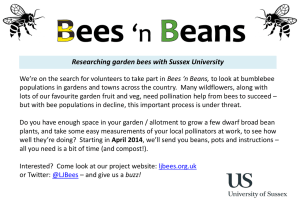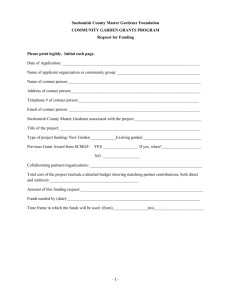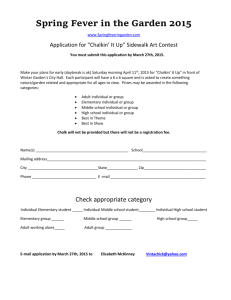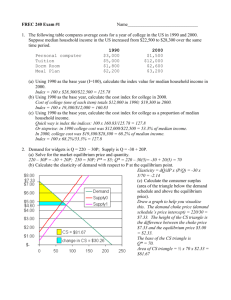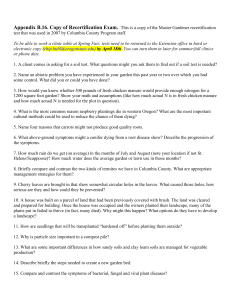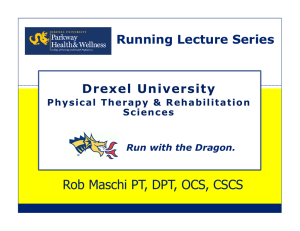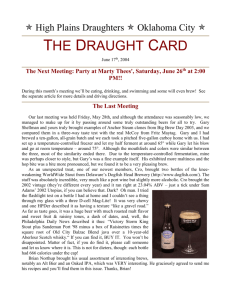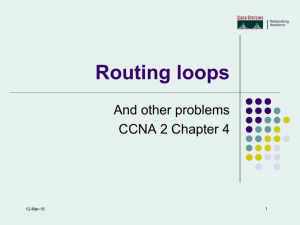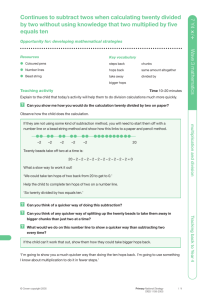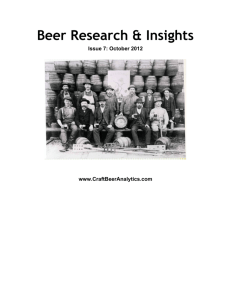Hiring for Hands on Plant Science (HOPS) Summer Program at the
advertisement
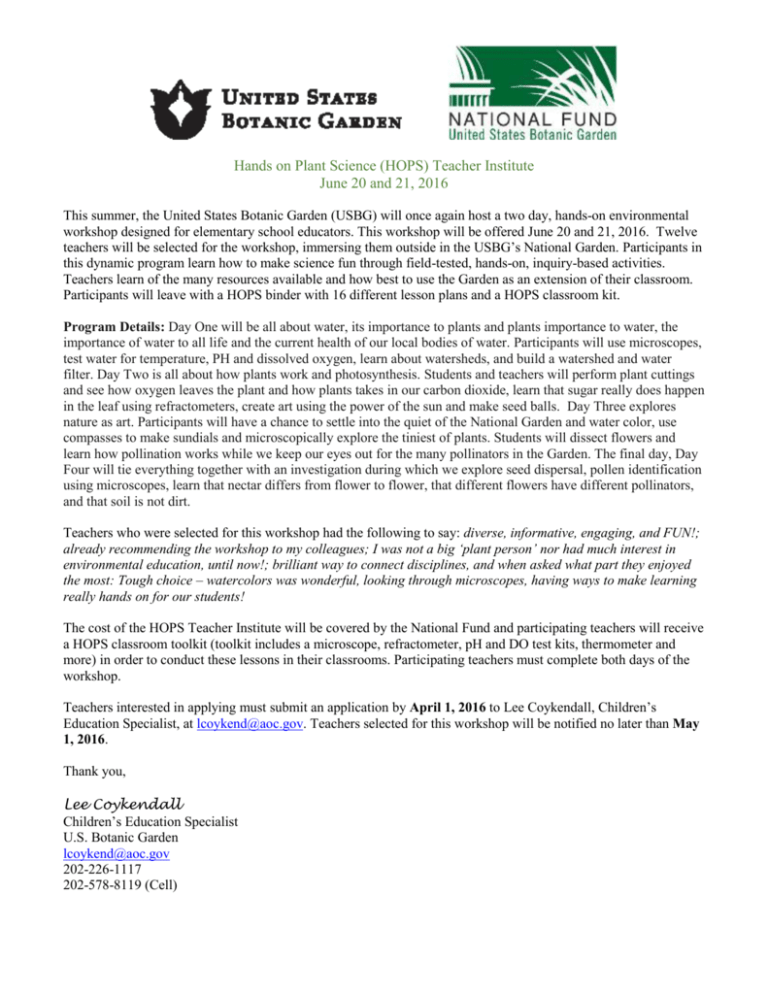
Hands on Plant Science (HOPS) Teacher Institute June 20 and 21, 2016 This summer, the United States Botanic Garden (USBG) will once again host a two day, hands-on environmental workshop designed for elementary school educators. This workshop will be offered June 20 and 21, 2016. Twelve teachers will be selected for the workshop, immersing them outside in the USBG’s National Garden. Participants in this dynamic program learn how to make science fun through field-tested, hands-on, inquiry-based activities. Teachers learn of the many resources available and how best to use the Garden as an extension of their classroom. Participants will leave with a HOPS binder with 16 different lesson plans and a HOPS classroom kit. Program Details: Day One will be all about water, its importance to plants and plants importance to water, the importance of water to all life and the current health of our local bodies of water. Participants will use microscopes, test water for temperature, PH and dissolved oxygen, learn about watersheds, and build a watershed and water filter. Day Two is all about how plants work and photosynthesis. Students and teachers will perform plant cuttings and see how oxygen leaves the plant and how plants takes in our carbon dioxide, learn that sugar really does happen in the leaf using refractometers, create art using the power of the sun and make seed balls. Day Three explores nature as art. Participants will have a chance to settle into the quiet of the National Garden and water color, use compasses to make sundials and microscopically explore the tiniest of plants. Students will dissect flowers and learn how pollination works while we keep our eyes out for the many pollinators in the Garden. The final day, Day Four will tie everything together with an investigation during which we explore seed dispersal, pollen identification using microscopes, learn that nectar differs from flower to flower, that different flowers have different pollinators, and that soil is not dirt. Teachers who were selected for this workshop had the following to say: diverse, informative, engaging, and FUN!; already recommending the workshop to my colleagues; I was not a big ‘plant person’ nor had much interest in environmental education, until now!; brilliant way to connect disciplines, and when asked what part they enjoyed the most: Tough choice – watercolors was wonderful, looking through microscopes, having ways to make learning really hands on for our students! The cost of the HOPS Teacher Institute will be covered by the National Fund and participating teachers will receive a HOPS classroom toolkit (toolkit includes a microscope, refractometer, pH and DO test kits, thermometer and more) in order to conduct these lessons in their classrooms. Participating teachers must complete both days of the workshop. Teachers interested in applying must submit an application by April 1, 2016 to Lee Coykendall, Children’s Education Specialist, at lcoykend@aoc.gov. Teachers selected for this workshop will be notified no later than May 1, 2016. Thank you, Lee Coykendall Children’s Education Specialist U.S. Botanic Garden lcoykend@aoc.gov 202-226-1117 202-578-8119 (Cell) HOPS TEACHER INSTITUTE 2016 |2 Hands on Plant Science (HOPS) Teacher Institute Application NAME: ________________________________________ PERMANENT ADDRESS: _________________________________________________________ ___________________________________________________________ TELEPHONE NUMBERS: (HOME) _______________________ (CELL) __________________ EMAIL ADDRESS: _____________________________________________ CURRENT SCHOOL NAME AND ADDRESS: _______________________________ ________________________________________________________________________ YEARS TEACHING AT CURRENT SCHOOL: ___________________ GRADE AND SUBJECT: ____________ SCHOOL PRINCIPAL NAME AND EMAIL ADDRESS: _________________________________ Please include a paragraph on each of the following: 1) What challenges do you face as a classroom teacher ensuring students experience hands on learning? 2) List several ways you would incorporate this workshop into your classroom for the 2015/16 school year.


